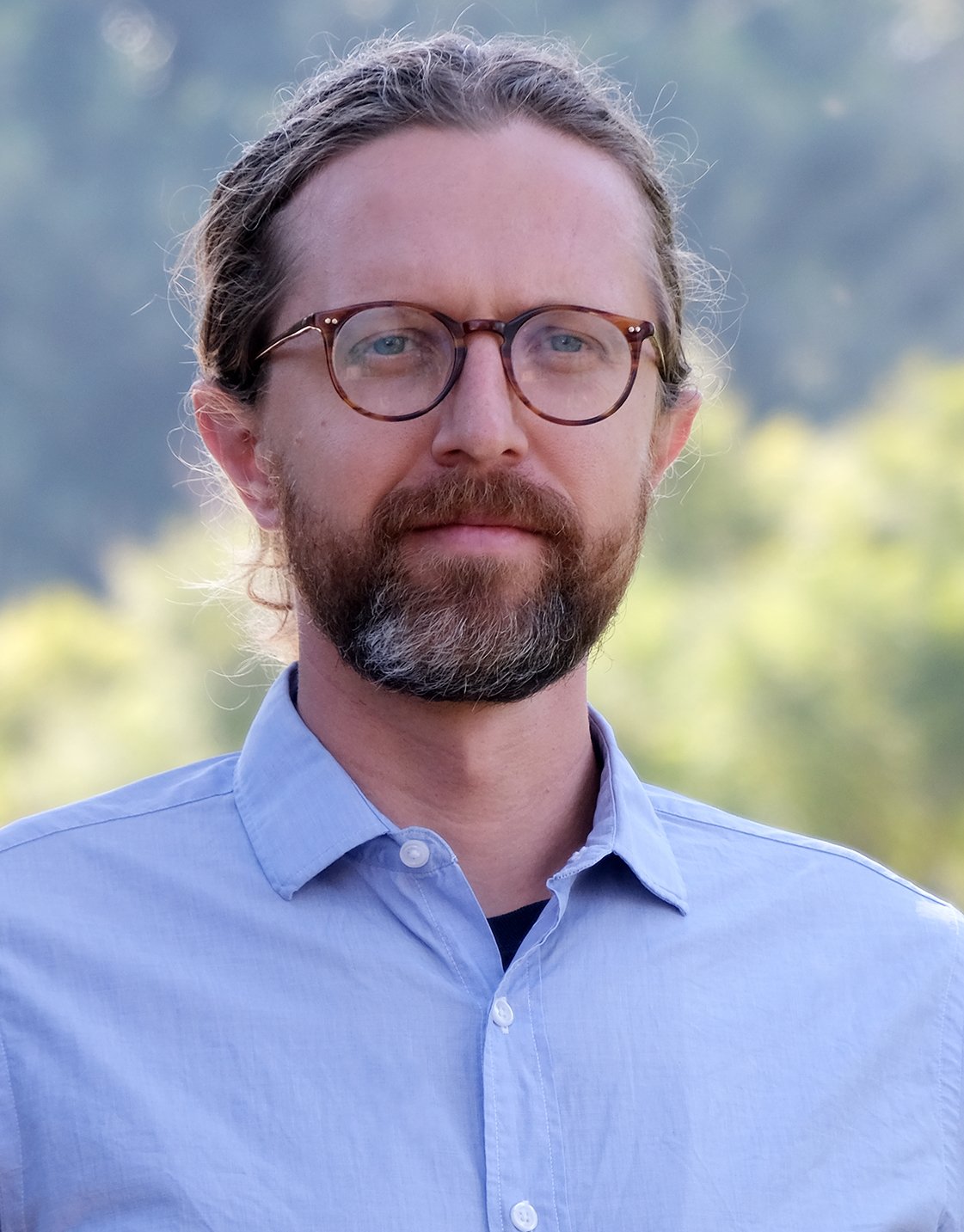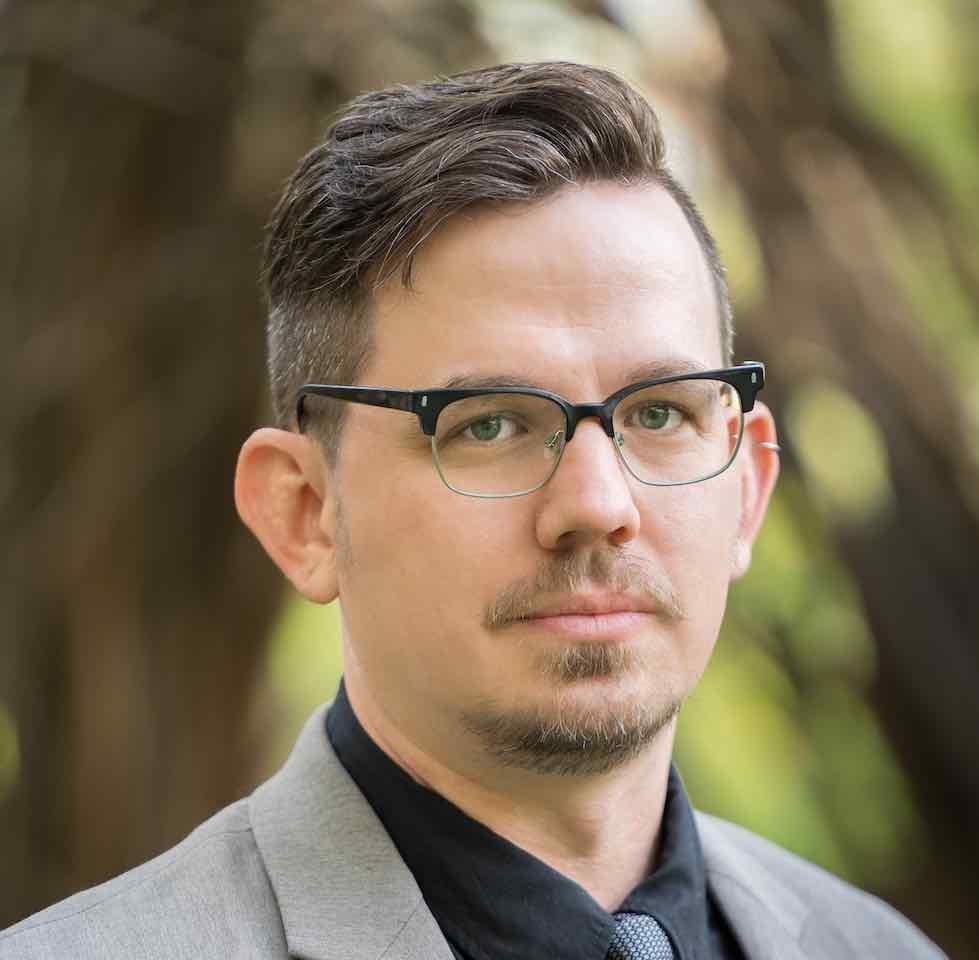“Reading Arabic Manuscripts”
Mediterranean Studies Summer Skills Seminar
24-27 June 2024 • Remote
The Summer Skills Seminar, “Reading Arabic Manuscripts” will be held via Zoom from Monday, 24 June to Thursday, 27 June 2024 from 10am to noon and 1pm to 3pm MDT.
Course overview
This Summer Skills Course will build participants’ ability to read handwritten Arabic manuscripts and documents, primarily those written before the twentieth century. It is designed with academics in mind, particularly graduate students, postdocs, and professors working in disciplines such as history, literature, and religious studies. All interested parties with at least two years of Arabic language training are, however, welcome to apply, and attention will be paid to the ways that paleographical skills can enhance diverse forms of research and teaching. Participants will receive a completion certificate which may be listed on a CV and on other documents such as grant/fellowship applications. The seminar is held via Zoom over four days, with two two-hour sessions each day. Participants are expected to prepare readings in advance of the sessions, which will be a blend of lecture and pair- and group-work.
Populations who spoke and read Arabic across pre-modern Eurasia and northern Africa—from Iberia to Indonesia—have left a vast trove of manuscript codices and documents, which survive in libraries, museums, and private holdings. Only a small fraction of these texts have been edited or published. Most, in fact, have not been read for centuries.
This four-day intensive seminar will provide participants with the paleographical tools and skills to quickly and accurately read premodern handwritten Arabic texts. Intensive practice sessions, both prepared and impromptu, will be paired with readings in the major reference works in English (and occasionally other modern languages). The seminar is organized around a general typology of scripts and hands: we will trace the development of the Arabic script from the ḥijāzī and Abbasid bookhands of the Early Islamic period (650–900), to its formalization and regional variation in the middle periods (900–1400), to its further elaboration in the age of early modern empires and eventual standardization in print (1400–1900). Special attention will be paid to major script families that tend to give readers trouble, such as maghribī and nastaʿlīq.
The goal is to enhance participants’ ability to read handwritten Arabic texts in their research and teaching and provide them with a bona fide (in the form of a certificate of completion for those who attend the full seminar), which may be advantageous in securing funding for research and travel. Preparation in Arabic paleography can be a way for scholars working in history, literature, philology, or religious studies (or other fields) to access new and important primary sources, distinguish their research and/or teaching profiles, and enter into discussion with new interlocutors.
Preparation and Resources
Participants are strongly encouraged to watch, before the beginning of the course, one of these two recent UCLA+ Islamic-manuscript training courses:
• https://www.international.ucla.edu/cnes/islamic
• https://marbas.princeton.edu/arabic-manuscripts-workshop-august-23-27-2021
To get a sense of the resources in the field, explore Evyn Kropf’s resources page:
• https://guides.lib.umich.edu/islamicmsstudies
Also recommended are the Leiden and HMML resource sites/courses:
• https://mouse.digitalscholarship.nl/
• https://hmmlschool.org/arabic/
This Summer Skills Seminar builds on the experience of earlier editions, which participants described as “transformative” in terms of their research, and which provided them with an opportunity to network and lay the foundations for future collaborations. For information and participant reviews of our former Skills Seminars (Ladino/Judezmo & Aljamiado) see here.
Faculty
The course will be led by Prof. Luke Yarbrough (Islamic Studies and NELC, UCLA). A graduate of the Princeton University’s Department of Near Eastern Studies (PhD, 2012) and a historian of pre-modern Islamic history and thought, Yarbrough makes extensive use of Arabic manuscript sources in his work. He has organized and taught several courses in Arabic manuscript studies.
Participants
Nassar AlFalasi
(Zayed University)
Nasser AlFalasi is a PhD candidate at the University of Edinburgh, specialising in the study of administrative governance during the medieval period. His doctoral research focuses on ʿAbd Allah Ibn al-Muqaffaʿ, a distinguished Abbasid scholar and kātib, exploring his contributions in administrative practices and literary culture. Nasser's scholarly interests extend to critical examinations of historical texts, including his current work on a 12th century manuscript attributed to Ibn al-Muqaffaʿ. Additionally, he is investigating the administrative reforms and policies during the reign of the Ayyubid sultan al-Malik al-ʿAdil, the brother of the renowned Saladin.
Laurie Brand
(Political Science & International Relations and Middle East Studies: University of Southern California)
Laurie A. Brand (Ph.D. Columbia University, 1985) is Professor Emerita of Political Science & International Relations and Middle East Studies at the University of Southern California. A past president of the Middle East Studies Association of North America (2004), and chair of its Committee on Academic Freedom since 2006, she specializes in Middle East international relations and inter-Arab politics. A Rockefeller Bellagio Center resident scholar in fall 2013, a Carnegie Scholar for 2008-10 and a four-time Fulbright scholar to the Middle East and North Africa, she is the author of Palestinians in the Arab World: Institution Building and the Search for State (Columbia University Press, 1988), Jordan’s Inter-Arab Relations: The Political Economy of Alliance Making (Columbia University Press, 1994); Women, the State and Political Liberalization (Columbia University Press, 1998); Citizens Abroad: States and Migration in the Middle East and North Africa (Cambridge University Press, 2006); and Official Stories: Politics and National Narratives in Egypt and Algeria (Stanford University Press, 2014). She is currently working on a book on academic freedom in the shadow of the war on Gaza.
Du Fei
(History: Cornell University)
Du Fei is a Ph.D. candidate in the Department of History at Cornell University. His dissertation ‘Local Women, Global Histories? Gendering Economic Life, Law, and Islam in Transregional India’ studies Muslim women’s participation in the local and transregional economic exchanges of the Persianate and Indian Ocean worlds that converged in India during the region’s transition from Mughal to British colonial rule in the eighteenth and nineteenth century. Situated at the intersection of history, gender and sexuality studies, and Islamic studies, this dissertation challenges existing gender-blind narratives of how trade and travel contributed to the making of global Islam.
Publications
“Fatima’s Inheritance: Law, Islam, and Gendered Archive-Making in India’s Early Modern Global Connections.” Past & Present, advance article, April 2024.
“Know Your Rights: The (Un)Making of the Colonial Legal Subject in Rural North India, circa 1770-1857.” Modern Asian Studies 56, no. 1 (2022): 65-95.
Jiang, Jingkui, and Du Fei. “On Hindi Manuscripts in Nineteenth-Century North India.” Asian and African Studies, no. 2 (2017). (In Chinese).
Zakir Hussein Gul
(Near Eastern Languages and Civilizations: Harvard University)
Zakir Hussein Gul is a PhD student at Harvard University. He read Arabic and Persian as an undergraduate at the University of Oxford, followed by a year at Harvard where he focused on improving his Persian reading skills and gained acquaintance with Indo-Persian literature, in addition to making forays into Chaghatāy Turkic. He thereafter spent two years pursuing an MA in Persian Language and Literature at the University of Tehran, where he had the good fortune to study in depth the mainstays of the pre-modern Persian canon and obtain substantial palaeography and codicology experience through producing a critical edition of Ottoman şeyḫülislām Kemālpaşazāde’s (d. 940/1534) Nigāristān, composed in emulation of Saʿdī’s Gulistān and Jāmī’s Bahāristān. The 550 page critical edition, submitted as his MA thesis, is to be published by Miras Maktoob duly. Upon returning from Iran, he attended daily Turkish classes at TÖMER, Kadıköy and graduated the following year with a C1 diploma in the language. Since beginning his PhD studies in 2024, Zakir works on the intellectual history of the Islamicate world in the late middle ages/ early modern period as expressed through the vehicle of literature in the alsina-yi s̱alās̱a.
Publications:
Gul, Z. ﺗﺼﺤﻴﺢ ﻧﮕﺎﺭﺳﺘﺎﻥ ﮐﻤﺎﻝ ﭘﺎﺷﺎﺯﺍﺩﻩ: The Nigāristān of Kemālpāşāzāde, Miras Maktoob, Forthcoming
Gul, Z. “Persian Idiom, Ottoman Meanings: Introducing Kemālpāşāzāde’s Nigāristān.” Diyâr, Journal of Ottoman, Turkish and Middle Eastern Studies, vol. 10, no. 2, 2024, Forthcoming.
Kelly Hannavi
(History, Women's and Gender Studies: University of Michigan)
Kelly Hannavi is a PhD Candidate in the joint History and Women’s and Gender Studies program. She is a social and cultural historian of late Ottoman Mesopotamia, with a focus on religion, gender/sexuality, and communal belonging. Her dissertation, “Belonging and Boundaries: Subjectivity, Gender/Sexuality, and Spirituality of Syriac Christian Communities in Late Ottoman Mardin,” examines how structures of gender and sexuality were used by Syriac Christians to maintain inter- and intra-communal boundaries in an era of competitive confessionalism.
Jaehoon Jung (Islamic Studies, Columbia University)
Jaehoon Jung is an MA student in Islamic studies at Columbia University from the Republic of South Korea. Jaehoon completed his BA from Hankuk University of Foreign Studies (HUFS) located in Seoul, in the department of Persian and Iranian studies, with a minor in Arabic. As a student who has been interested in Islamic Jurisprudence and its formation, Jaehoon’s primary interest is development of Islamic Jurisprudence, legal principles (Usul al-Fiqh), and contemporary Maqasid discourses, as well as the formative history of Shi'ite Islam.
The interest in the history of Imāmī (Twelver Shīʿī) uṣūl al-fiqh and its relation to kalām necessitates reading Arabic and Persian manuscripts related to the subject and analysis of marginalia in the scripts, regarding which I could get a meaningful experience throughout the Islamic studies MA program at Columbia University Middle East Institute, along with the educational background on classical Arabic syntax and grammar from the private education in the Twelver Shīʿī seminary (Ḥawza). To enhance my skill on Arabic manuscript analysis and to acquire advanced research skills I have applied for research assistantship of Arabic paratexts research on Maqāmāt al-Ḥarīrī, of which main research is to focus on the transcription of samaʿāt manuscripts and the identification of the narrators recorded in the texts. I was thus introduced to the seminar by Professor Keegan as an opportunity to gain a prerequisite skill for Arabic manuscript readings.
Matthew Keegan (Asian and Middle Eastern Cultures, Barnard College of Columbia University)
Matthew L. Keegan is the Moinian Assistant Professor of Asian and Middle Eastern Cultures at Barnard College of Columbia University. His research focuses on the intersection of Arabic literature and Islamic Studies. His first book on al-Ḥarīrī's Maqāmāt and its commentary tradition is currently under contract with University of Pennsylvania Press, and he has published articles on Arabic poetry, Quranic exegesis, and Islamic legal riddles. He also has an interest in the Nahḍa and has co-translated with Elias G. Saba a 19th-century novella by Khalīl al-Khūrī entitled Way Idhan Lastu bi-Ifranjī, which will be published with New York University Press's Library of Arabic Literature series.
Dr. Keegan's current research project engages with the understudied poetry and prose of the era between the First Crusade and the fall of Baghdad to the Mongols. This literature has often been viewed through the lens of the Crusades, but this era was one of literary experimentation with a range of concerns beyond the counter-Crusade. It builds on his two recent articles, "Rethinking Arabic Poetry as (Anti-Crusader) Propaganda" and "Adab Without the Crusades.
Related to manuscript studies, Dr. Keegan is conducting a project on paratextual elements in Arabic manuscripts, such as audition certificates and reading notes. This project is supported by a subgrant under the auspices of the University of Glasgow "Paratexts Seeking Understanding" project in collaboration with the Chester Beatty Library.
Dr. Keegan received his PhD from New York University and his M.Phil from Cambridge University. He also completed graduate work at the American University in Cairo and Princeton University. Prior to joining Barnard College, he held positions at the American University of Sharjah and the Freie Universität Berlin.
Kamel Onsi (Religion: Princeton University)
Onsi is a PhD student in Philosophy and Religion. His primary research interests lie in metaphysics and epistemology, the history of philosophy, historical theology, and intellectual history. He is currently researching medieval Christian Arabic philosophy and theology, examining how Arabic-speaking Christian theologians and intellectuals engaged with their Islamic and Jewish counterparts, and how this inheritance was transferred to the Latin West. Onsi received an MA at the University of Chicago’s Program in the Social Sciences (2021), concentrating in history and an MA in Theological Studies from Princeton Theological Seminary (2019), where he was awarded the Seminary Fellowship. He earned his B.A. in religious studies from the University of Chicago. His first journal article, “The Beloved Icon: An Augustinian Solution to the Problem of Sex,” was published in The Scottish Journal of Theology.
Laila Makboul (Institute for the Study of Middle East and Muslim Societies (ISNO), University of Bern)
I obtained my PhD in Middle Eastern studies from the University of Oslo with the thesis: "Pious Power: Epistemology, Discourses and Practices of Female Intellectual Preachers in Saudi Arabia" (2019). In 2020, I was awarded a Marie Skłodowska-Curie Global Fellowship with my research project on transnational networks of Islamic women organizations (GlAntiFem). I am currently an advanced postdoctoral researcher in the SNSF funded project “TraIL. Tracing Labour in Islamicate Legal Traditions” led by Professor Serena Tolino.
Publications:
1. “Religiøse reformer og kampen om Saudi-Arabias fremtid», in Globale Veikryss. Golfmonarkiene i endring, edited by Berit Thorbjørnsrud and Jon Nordenson, Oslo: Cappelen Damm, 2022.
2. “Going Online: Saudi Female Intellectual Preachers in the New Media.” Chap. 6 in Muslim Preaching in the Middle East and Beyond, edited by Simon Stjernholm and Elisabeth Özdalga, Edinburgh: Edinburgh University Press, 2020.
3. "Public Piety and the Politics of Preaching among Female Preachers in Riyadh ". Chap. 10 in Political Quietism in Islam. Sunni and Shi'i Thought and Practice, edited by Saud al-Sarhan. London: I.B. Tauris, 2019.
4. Co-author with Ida Almestad. "Riyadh. Arkaisk Familiesete med Reformambisjoner.” Chap. 7 In Brennpunkt Midtøsten, edited by Nils A. Butenschøn and Rania Maktabi. Oslo: Universitetsforlaget, 2018.
5. "Beyond Preaching Women: Saudi Dāʿiyāt and Their Engagement in the Public Sphere." Die Welt des Islams 57, no. 3-4 (2017): 303-28.
Manolis Ulbricht
(History, University of Copenhagen/ Notre Dame University)
Manolis Ulbricht is a Marie Curie Postdoctoral Fellow at the Medieval Institute of the University of Notre Dame. His EU-funded project “Documenta Coranica Byzantina (DoCoByz). Byzantino-Islamica in the Age of Digital Humanities” (2023-26) examines Greek translations of the Qur’an and anti-Islamic discoursesin Byzantine polemics and compare their impact on Latin traditions. .
Manolis Ulbricht earned his PhD at Freie Universität Berlin/Germany in Byzantine Studies with a dissertation on the Coranus Graecus—co-supervised by Angelika Neuwirth—preparing a Greek-Arabic synoptical edition with commentary and glossary of the first translation ever of the Qur’an accomplished into Greek in the 9th century CE. His research focuses on Christian-Muslim relations from the 7th–12th century, especially the diachronic reception the Qur’an and transfer of knowledge on Islam in Byzantium. He spent two years in Damascus for Qur’anic studies and several years in Greece for manuscript study, including Mount Athos. He was researcher and visiting scholar at the Chairs of Byzantine Studies in Berlin and München, the National University of Athens and National Hellenic Research Foundation, and research fellow at the Institute of Arabic and Islamic Studies in Göttingen. His interdisciplinary research approach is based on the cross-road of Greek and Arabic philologies, Byzantine Orthodoxy, Muslim theology, and Eastern Christianity, paleography and codicology, digital humanities as well as Byzantine hymnology and music theory of the Eastern Mediterranean (maqām).
Briana Wipf
(English: University of Pittsburgh)
Briana Wipf studies the literature of cultural contact during the Middle Ages. She defended her doctoral dissertation, “Marvels and ‘Ajā’ib as Contact Points: Medieval Christian, Muslim, and Jewish Literature on Cultural Contact” in April 2024 and will graduate from the University of Pittsburgh in August. She plans to apply what she learns in the seminar to work on Arabic geographies and compendia.













